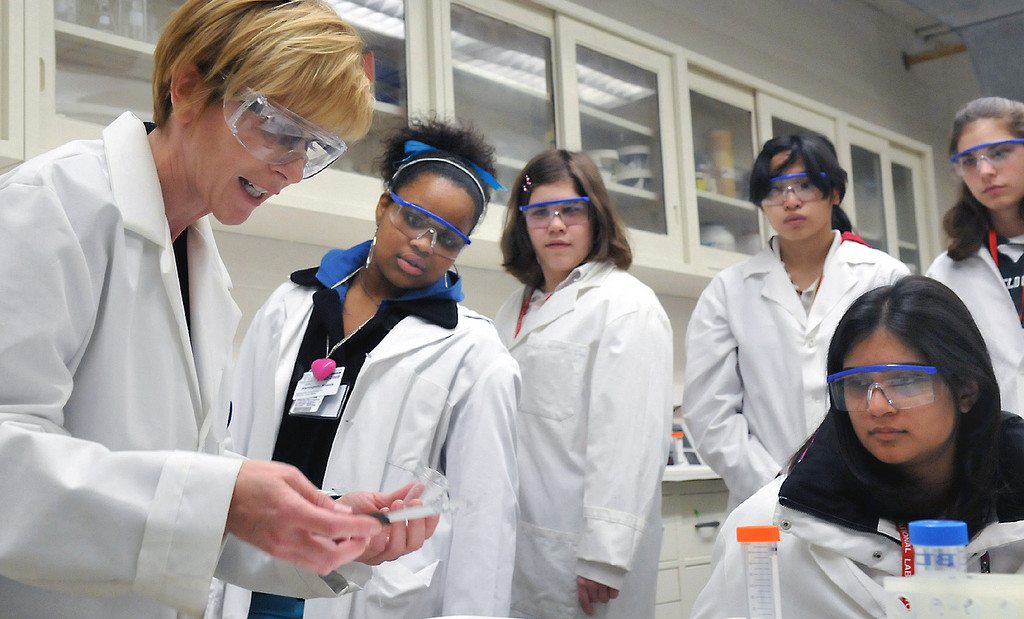Women in science and the inequality debate
The gender divide in Science, Technology, Engineering and Mathematics (STEM) subjects is a well-documented issue. Over the past 50 years, much has been done to narrow the gap between the sexes; yet women remain under-represented in scientific careers.
Despite 53 per cent of all science undergraduate degrees in 2010/11 being awarded to female students, only 13 per cent of all STEM jobs in the UK are occupied by women. In February, the UK government’s Science and Technology Committee published a report on “Women in Scientific Careers”. They concluded that there is no single cause for the lack of gender diversity in STEM subjects. Instead, it seems to have arisen as a result of perception and biases as well as the impracticalities of combining career and family.
Losing women from the career path is often referred to as the “leaky pipeline”. The points in the pipeline where “leaking” occurs can vary between disciplines. In some subjects, the problem is retention of women entering the field. This could be due to a gradual decline from undergraduate to professional level, or a more abrupt “bottleneck” in career progression. Other subjects face difficulties in recruitment. For example, only 21 per cent of A-Level Physics students are female. Here, promoting more girls to take up the subject would be a possible solution to the problem. But what is being done to tackle the retention issue and prevent well qualified women leaving scientific careers at postgraduate level and above?
In 2005, the Equality Challenge Unit (ECU) launched the Athena SWAN charter. The charter works to advance women in the STEMM subjects: Science, Technology, Engineering, Medicine and Mathematics. By joining the charter, a higher education institute must indicate that their organisation will take action to address the six principles at the heart of the Athena SWAN. This includes changing cultures and attitudes, addressing the high loss rate of women in science and recognising the negative consequences of short-term contracts. The charter requires commitment from everyone, at all levels of the organisation.
Once an institution has joined the charter, they can apply for an Athena SWAN award. There are three awards – gold, silver and bronze. The bronze award is a base level award. It recognises universities with policies in place to ensure family friendly working and transparent recruitment and promotion procedures. The silver award recognises universities and departments who implement policies and are making progress towards addressing challenges. The gold award is for significant and sustained progress in plans identified at silver level.
A university must achieve a bronze award before individual departments can apply in their own right. The University of Warwick holds an Athena SWAN silver award, one of only four universities to do so. Currently, no university has a gold award, meaning Warwick is one of the foremost universities promoting gender equality. On a departmental level, the departments of mathematics, psychology, statistics, engineering, life sciences and WMG have all achieved a bronze award, while physics, chemistry and the medical school have a silver award.
Though it is not a complete solution to the issues of equality in science, the Athena SWAN charter is a step in the right direction. Change is coming. Problems have been recognised and professionals are speaking out. Grass-roots organisations such as Science-Grrl – a group promoting equality in science – have been set up, enticing more school students to peruse a career in science. Brought together by a shared love of science, members work hard to promote women in science by means of social media and local connections.
But the people who have the greatest potential for change are us. As current undergraduate and postgraduate students, we represent the future of STEM subjects. It is important for us to be aware of equality issues, not just gender, but also race, age, disability and sexual orientation. Only then can we work towards a future with equality for all.

Comments